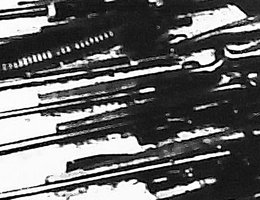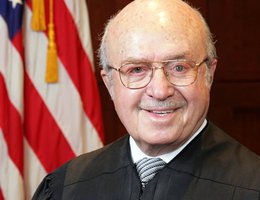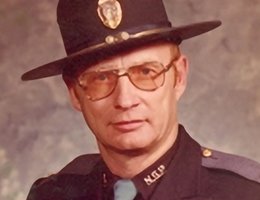

In the early 1980s, there were several radical farm groups that had organized to prevent the loss of farms. The groups had different prescriptions for how to solve the problems of agriculture, but they shared a belief that farmers weren’t to blame for their problems. Instead, these groups blamed a conspiracy of powerful national and international groups — like Jews or Masons — who were trying to take over the food system.
Arthur Kirk denied that he was a member of any of these groups, but he did have literature from some and had stockpiled over 25 guns, a gas mask, and an Army helmet in his house. Some investigators believed that Kirk belonged to the Posse Comitatus, a militant organization whose members were linked to tax resistance and violence.
We do know that Kirk had attended at least one meeting of the National Agricultural Press Association, a group of farmers who were looking at the U.S. Constitution for protection against foreclosure. Kirk filed a lawsuit acting as his own attorney arguing that all loans written after 1974 were invalid because the contracts violated the federal Truth-in-Lending Act.

The suit was very similar to almost 40 others filed that year by farmers in Nebraska. These suits also demanded millions of dollars in damages. But Judge Warren Urbom wrote in July that Kirk’s case was "utterly lacking in merit, as I have repeatedly said in similar cases."
Kirk was also active in Nebraskans for Constitutional Government and the National Commodity and Barter Exchange, groups that advocated unconventional legal and constitutional schemes to solve financial problems.
The radical measures advocated by these groups was a measure of the desperation that farmers felt in the face of the farm crisis. There were a lot of farmers who seemed to agree with the views of the radicals.

Nebraska State Patrol Superintendent Elmer Kohmetscher said that year that Nebraska was probably home to a considerable number of radicals who were heavily armed and potentially dangerous. These radicals posed a potential threat to both the police officers and the general public.
Kohmetscher said an investigation in the North Platte area in 1983, for example, showed that at least 23 people had bought fully automatic weapons that had no real use in hunting. One man alone bought eight Uzi machine guns that could be converted to fully automatic with very little effort.
Officials did not know where Arthur Kirk bought his guns, but the growing numbers of high-power weapons worried many. As the farm crisis grew more desperate, people worried that more violence would follow.